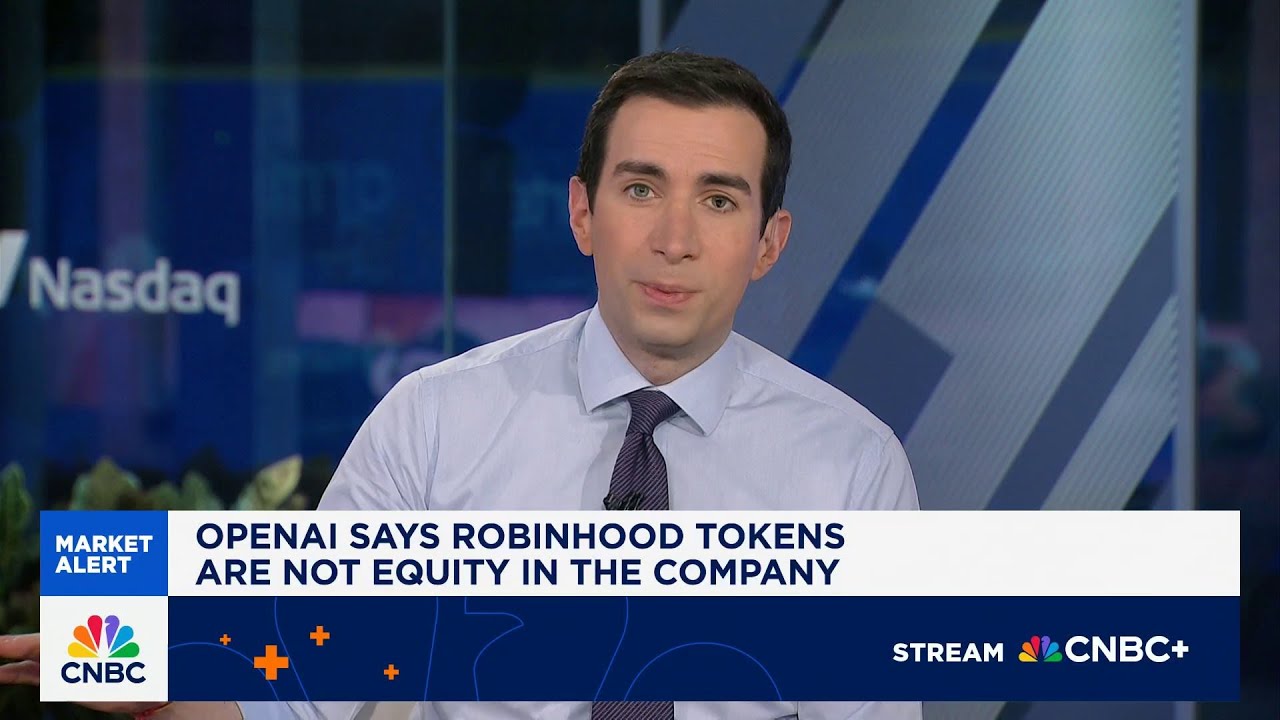The video explains that Robinhood’s tokenized shares of private companies like SpaceX, available only in Europe, are derivative tokens providing exposure but not actual equity, with OpenAI clarifying it has no partnership or endorsement of these tokens. It highlights concerns about investor misunderstanding, regulatory challenges, and the tension between democratizing access to private markets and protecting investors from potential risks.
The video discusses Robinhood’s recent introduction of tokenized shares of private companies like SpaceX, available only to European users due to regulatory restrictions in the United States. OpenAI has publicly distanced itself from this initiative, clarifying that the OpenAI tokens offered by Robinhood are not equity in the company, that they did not partner with Robinhood, and do not endorse the tokens. OpenAI cautions users to be careful, emphasizing that these tokens do not represent actual ownership in the company.
Robinhood responded by explaining that these tokens provide retail investors with indirect exposure to private markets through a special purpose vehicle (SPV) that holds the underlying shares. The company breaks up ownership of the SPV into derivative pieces or tokens that track the value of the private shares. This approach is similar to creating a tracking stock, allowing investors to gain exposure without owning the actual shares. However, this method raises questions about the legality and transparency of such offerings, especially since private companies like SpaceX and OpenAI typically do not want their shares widely traded or liquid.
The video highlights concerns about the implications of tokenizing private company shares. Private companies often restrict share liquidity to maintain control and company culture, as unrestricted trading could lead to a shift in employee incentives and company dynamics. The example of Sam Altman’s comment on maintaining company culture by limiting liquidity is cited to illustrate why companies may resist broad public trading of their shares. This raises the issue of whether such tokenized shares undermine the intentions of private companies and the regulatory frameworks designed to protect investors.
Experts in the video emphasize that these tokens are derivatives rather than actual shares, meaning investors do not own the underlying assets but rather have exposure similar to options or bets on the value of the shares. This distinction is crucial because many retail investors may misunderstand the nature of these tokens, believing they own equity when they do not. The regulatory environment is still evolving, with some officials reluctant to impose strict regulations on these new financial products, instead focusing on making public company ownership more attractive to reduce demand for such alternatives.
Finally, the video touches on the broader debate about democratizing investing. While there is a desire to provide retail investors access to private markets, there are significant concerns about investor protection, disclosure, and the potential risks of these tokenized products. The discussion acknowledges the tension between expanding access to investment opportunities and maintaining safeguards to prevent fraud and protect less sophisticated investors. The conversation ends with the recognition that policy and regulatory frameworks need to catch up with these innovations to balance opportunity and protection effectively.
